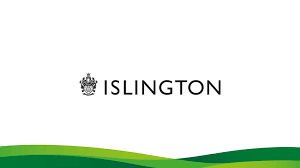In a damning report by the Bureau of Investigative Journalism, Now Medical, also contracted by Tower Hamlets Council, has been found repeatedly to make incorrect assessments, thus forcing vulnerable and ill individuals into homelessness.
Below is a summary of the findings, as well as the response from Islington Council in seeking alternatives to Now Medical. It’s time for Tower Hamlets Council to do the same.
At least 118 councils across England have used NowMedical, spending more than £2m of taxpayers’ money since the start of 2014.
NowMedical charges £35 plus VAT for a basic report on whether someone is medically vulnerable enough to get long-term support to prevent or alleviate their homelessness. In most cases, this is produced solely on the basis of the council’s paperwork; the doctors working for NowMedical rarely meet the person involved, and do not regularly access their full medical records or talk to their GP. On its website, NowMedical says that it can turn reports around in a single day.
Lawyers familiar with the system told the Bureau that the company “churns out findings very quickly” and in some instances, they believe NowMedical “diminish or downplay” the severity of applicants’ conditions or unsuitability of housing. The result, they warn, is that life-changing decisions are being made by councils without rigorous enquiry.
Through Freedom of Information requests, the Bureau has learnt that the six-strong team, led by Dr John Keen, provides an estimated 14,000 assessments to councils per year, an average of 55 a day. In some cases the Bureau found them advising on applicants that live more than 250 miles away.
- Some more misdiagnosis by Now Medical included:
- A man with serious psychotic issues whose consultant psychiatrist had warned he was highly vulnerable;
- A 40-year-old man suffering PTSD;
- A suicidal refugee from Mauritania who had been subjected to slavery and human trafficking;
- Torture victims from Mexico and Iran, including a man who had been beaten so badly he still suffered pain in his feet;
- An alcoholic man with epilepsy, psychotic episodes and depression, who after being rejected for homelessness support ended up living in a shed.
In another case, a judge questioned why Tower Hamlets council was favouring the opinion of a NowMedical psychiatric adviser who had not met the patient, over that of a practicing consultant who had examined him.
Explainer: Homeless or not?
In England, those threatened with or experiencing homelessness can approach their local council for help, assuming their immigration status means they are eligible for public funds. After an initial period of support where the council will try to end or prevent their homelessness, they will be assessed to see if they are eligible for long-term help.
The council will consider whether the person is intentionally homeless, how long-standing and strong their links to the local area are and, crucially, if they are so vulnerable that they warrant help.
People may be considered vulnerable if they have a physical disability, mental health issues, or if they are elderly, fleeing domestic abuse or have been in care or the military. But being considered vulnerable is not enough. The council housing officers will then decide if the person is significantly more vulnerable than an ordinary person would be if they became homeless. It is here many cases fall down.
If they decide the person does not meet that bar, then they are assessed as “non-priority need”. They can appeal the decision internally and even take the case to judicial review if they can find the funds. However, without the decision being overturned, the council is under no obligation to find them housing, leaving them with few options to keep them off the streets.
The response of Islington Council

NM was criticised in a scrutiny committee meeting in February 2019 by councillors and one of the borough’s leading housing lawyers.
Cllr Diarmid Ward, Islington Council’s housing chief, confirmed last night that he was “actively looking for alternatives” to NM.
And Stuart Hearne, co-director at the Islington Law Centre, said: “Islington Law Centre would support a decision by the council to find alternative arrangements to NowMedical because we have always been concerned about the use of NowMedical reports in homelessness cases.”
Given the above, it’s time for Tower Hamlets Council to actively seek alternatives to Now Medical.


The use of NOW medical is a disgrace, and caps all the problems of the last many decades in medical prioritisation of housing. Part of the problem is the appalling lack of council/social housing suitable or unsuitable.While private housing developments for the well off have blossomed, social housing provision has in no way matched the waiting list or need. Another part is that town hall cuts and successive government policies pushing boroughs into being purchasers rather than providers of services and employers of those who provide them, has removed skilled workers from the Council who could do assessment and link this with provision. It must have been an alienating job anyway because of lack of supply. There have always been problems about getting good reports on housing needs/ 30 years ago +, people asked for GP letters (which were not part of NHS work so often had to be paid for), and these seemed to stay randomly in piles on the desk of the medical officer of health. LBTh then said these would be ignored.After this the Council employed specialist nurses to do assessments, and to request medical information if needed. This seem to peter out as people left. More recently I think local occupational therapists were involved. Really, what is needed is a return to local assessment, for homeless and non homeless people with medical housing need, and an adequate supply of housing. Otherwise inevitably the people who become ill and die from lack of having housing need addressed are the huge majority, who cannot buy themselves out of that situation, increasing local inequalities further. And Now Medical or any other remote and/or for profit company working should lose contracts now, with urgent establishment of a better system.